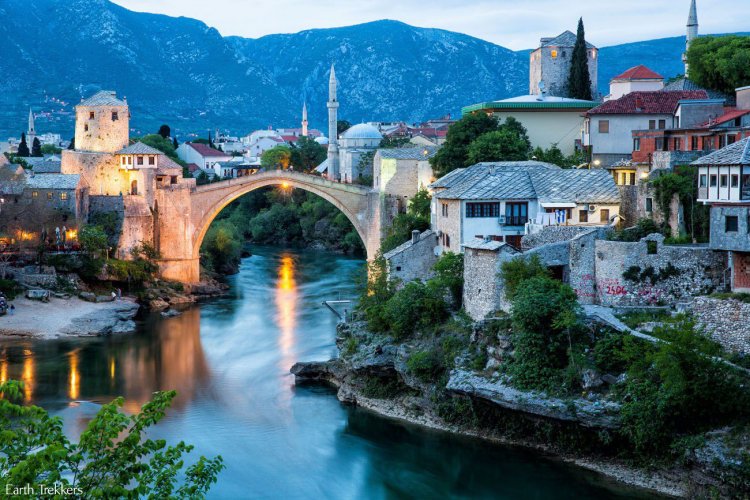Bosnia's Mostar held elections after 12 years, Ethnic Parties Won the First Local Vote

Mostar: Democracy is a privilege and the recent news about the civic elections in Mostar is a prime example of this!
Have you ever heard of a city where elections weren’t held for 12 long years? In case if you haven’t that is what happened in the southern Bosnian city of Mostar. Ironically, a town which is like a magnet drawing millions of tourists was suffocating under uncollected garbage and bore the scars of war from the 1990s: local echoes of a similar dysfunction at the national level until recently.
The block in the elections was caused following a dispute between parties representing the city’s two main ethnic groups that paralysed municipal institutions for more than a decade.
The city with a population of about 100,000 and known for its picturesque Ottoman architecture, became one of the symbols of the devastating conflict in Bosnia in the 1990s. During the war in the 1990s, its famous stone bridge was destroyed which was reconstructed in the early 2000s. But building the bridge changed nothing for Mostar. The city remained divided along largely ethnic lines. Since the end of the conflict, the east side is populated by Bosniaks, and the west side of the city is mostly populated by Croats.
For almost a decade, the political blocs representing Mostar’s these two main ethnic groups were unable to come to an agreement on electoral boundaries, which eventually led to a situation where duplicate public services functioned on each side of the river, rubbish went uncollected and public transport did not work properly hampering life of the locals.
The election date was set after an agreement was announced brokered by the US, EU, and British ambassadors in June, together with the representatives of the main Bosniak and Croat political parties. It followed a 2019 victory in the European court of human rights by Irma Baralija, a philosophy teacher from Mostar who sued the Bosnian government for failing to hold elections and who also stood in the elections.
The elections came in just after the 25th anniversary of the signing of the Dayton agreement, which ended the conflict in Bosnia and created the future political roadmap.
Despite the elections, the local voters face the question, with potential new leaders such as Baralija campaigning on bread-and-butter issues rather than on the ethnic agenda that has bogged down Bosnia for more than 25 years now. The ruling government not just needs to get the tone right for the economic development of the area but will have to start with solving the grassroots problem like the unsettled issues between the local ethnic groups. If the later remains unsolved then the whole purpose of having a government in the city may soon fail.
Currently, the country is far behind other western Balkan nations in the process of joining the European Union in the future.
Florian Bieber, of the University of Graz, mentioned to the press that “It’s an outlier from most of the other municipalities in Bosnia, but it does in a certain way reflect the situation at a higher level in the country.”
Slaven Raguz, the head of the opposition Croatian Republican Party: “Mostar has become a paradigm of Bosnia, in which ruling elites have tailored society according to their needs, living off taxpayers’ money and not showing any responsibility towards the people they are supposed to represent.”
While elites spar overpowers and financial resources, young people of all ethnicities in Mostar, and elsewhere in the country, face similar challenges of high unemployment and poor economic opportunities. Mostar’s young people face Europe’s highest rate of youth unemployment of 40.2%. Croats outnumber Bosniaks in Mostar by less than 5%, but people from both groups are leaving the town because its economy has been ruined by mismanagement.
Up until December 21, 2020, as per the unofficial partial results released by Bosnia’s Central Election Commission, the dominant nationalist Bosniak and Croat parties – the SDA and the HDZ respectively – won most of the votes, followed by mainly multi-ethnic political parties and alliances and these were only from 1 of the 7 electoral districts.
The locals and other observers will be looking to see whether newer parties seeking to transcend the stronghold of the main ethno-nationalist parties will make gains. And moreover, how this election will set a tone for Mostar’s future!















































